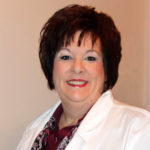Every workplace has its challenges. But, on the flip side, each has its advantages as well. We asked Beverly A. Ely, APRN, FNP-C, who works as a Family Nurse Practitioner in Harrogate, Tennessee, about what it’s like to see patients in a rural area.
What kind of work do you do?
I currently am a Family Nurse Practitioner and work with Lincoln Memorial University/DeBusk College of Osteopathic Medicine. We have 2 clinic locations that serve the University and the public. In the clinic, I see patients of all age groups from newborns to the elderly.
Working in a rural area is quite different from what most nurses do. Have you worked in a more urban or suburban area before this? If so, how does working in a rural area differ from those places?
My career spans over many decades and regions. I began a career in nursing in the late ‘80s. I graduated from Lincoln Memorial University with a degree as an Associate Nurse. I chose to begin my nursing career in Knoxville, TN and commute back and forth. Working in a suburban area, I encountered larger volumes of patients in which needs were very different than those in an urban location.
The urban area is different than the area where I first began my career. Coming back to it was a different experience, but one that has proven to be the most rewarding. I help them meet the simplest of everyday needs and assist them with coping skills to understand a diagnosis—this is rewarding. That is what I cherish about rural health and the people of the Appalachian area. I can now say that I can give back and serve the people that have given me so much.
Why did you choose to work in a rural setting? What kinds of patients do you tend to see? How are they different from those you saw in a more urban setting?
I chose to work and serve in the rural area of Appalachia because the needs are so great. I completed 29 years as a suburban nurse and saw many different classes for people. The common denominator for both is survival.
What have you learned from working as a nurse in a rural area?
I have learned to be patient and compassionate. I have learned that there is very little that we truly need in order to survive.
What are the biggest challenges of working in a rural setting?
The biggest challenge is compliance and understanding of their illness.
What are the greatest rewards?
Seeing people feel better and the smiles on their faces.
What would you say to someone considering moving to work in a rural area? What do they need to be willing to do or deal with?
I would voice that rural health is the most rewarding field that you can chose. It requires you to have compassion and patience.
Is there anything else about working in a rural area that is important for people to know?
Yes. Do I plan to continue here? The answer would be YES. It is the most rewarding of my 30 years as a nurse that I could have ever imagined. I’m compassionate and love the people of Appalachian and desire to see them live life to the fullest.
- What an MSN Can Do for You - October 18, 2023
- The National League for Nursing: Connecting the Academic and Clinical Worlds for 130 Years - August 16, 2023
- Treating Burnout, Trauma, and Grief with Dance - July 14, 2023



